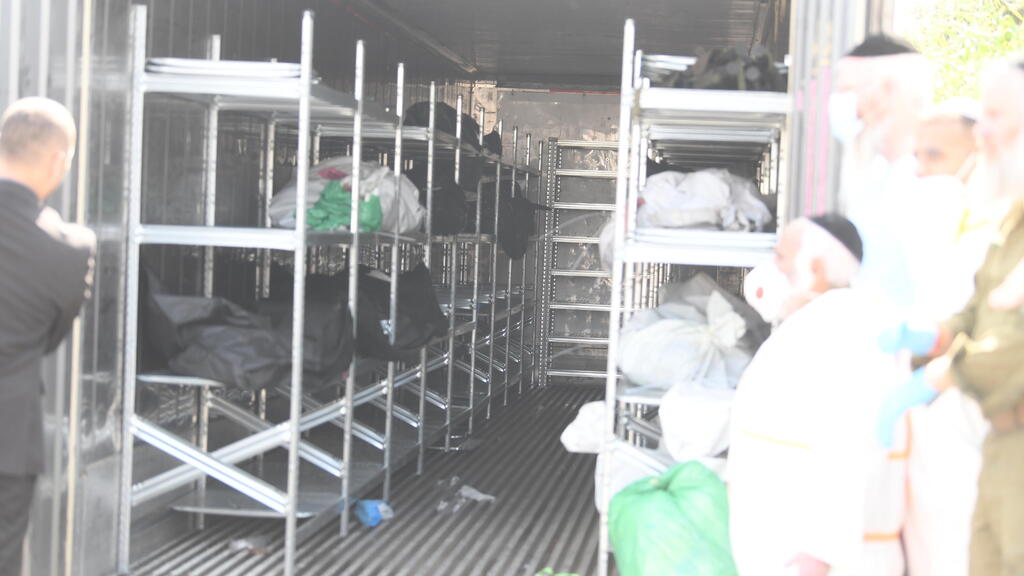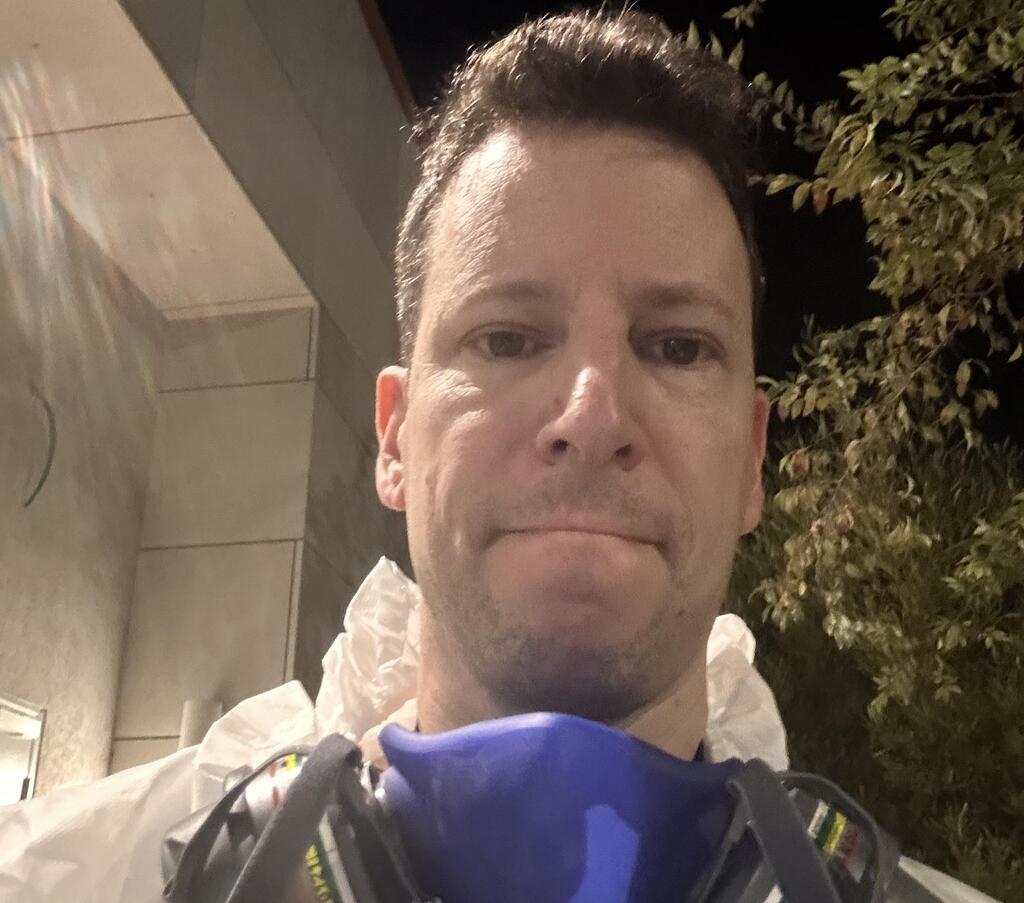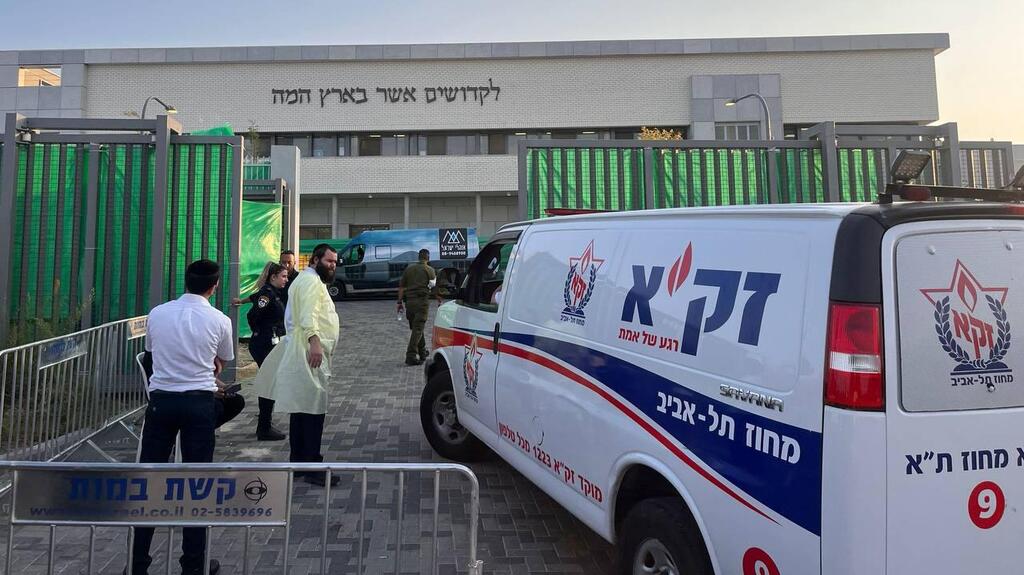A few days after Black Saturday - exactly two weeks ago - Dr. Guy Rosner was called to assist in the preparation of DNA samples of the victims of the Hamas attack. Rosner, a specialist in the plastic surgery department at Sheba Tel Hashomer Hospital, had already been exposed to harsh sights in the past as part of his work, but he knew that nothing could prepare him for the challenge that awaited him.
More stories:
"A few days after we realized what was happening, I realized that the Health Ministry was looking for surgeons who could volunteer to do a DNA test to identify the bodies, and I volunteered," he says. "As part of the work, you have to help extract DNA, that is, extract tissue from which DNA can be extracted. Unfortunately, quite a few of the bodies we received were not in a condition where it was easy to do this: there were badly burned bodies, there were bags that came with pieces that you didn't even understand what you were seeing, and you had to try to get something out of it."
In a post he published on social media a few days ago, which he uploaded from the Shura base of the military rabbinate, Rםsner attached a photo of himself wearing a special mask, and told about the difficult job: "To say that the last week was difficult would be an understatement. Hell on earth would describe the situation better," he wrote there. "I will not describe what I saw. The pictures and the smell are unrelenting. So terrible. There are simply no words."
What is the mask used for?
"It's because of the smell. There's nothing medical here that you need to protect. There's no chemical warfare here or things like that. But it's the stench of death, literally. You come and treat corpses that were sometimes 3 days to 5 days in the sun before they got to you."
Rosner and the team of doctors worked six-hour shifts around the clock, depending on the rate at which the bodies arrived. There is no time to stop, certainly no time to fall apart.
"As soon as a new truck arrives, we call those who are needed and do it. The work is very intense, it is very difficult for everyone," Rosner says in a broken voice. "The Health Ministry organized support groups for all the people who were part of what was going on there, in order to provide solutions."
3 View gallery


The Shura body identification complex in Ramla after the massacre in the south
(Photo: Yair Sagi)
Despite the experience he gained over his years working in the national burn unit in Sheba Tel Hashomer Medical Center, Rosner admits to the mental difficulty that came during his work in recent days. However, he repeats that there is no choice. We must continue.
"Technically, I had the ability to deal with it, these are difficult scenes that unfortunately I already know," he says. "However, there is also the mental aspect here. It is not treating burns, it is something else. You have no choice but to function as much as you can and compartmentalize what you are seeing."
"After the first truck I went outside and I was shocked, but very quickly you pick yourself up. It's hard. You see parts of bodies with tattoos and realize they are the murdered from the music festival, you know it came from there," he said.
"One of the first testimonies I heard, which was published on that very Saturday, was from a couple who were at a party. The guy's name was Guy and his partner's name was Michal, just like me and my partner. I catch myself and think that a few years ago it could have been us," Rosner said.
Is it even possible to separate? Are there things that go home with you afterwards?
"The smell is still with me. It just doesn't go away. But it has to be done. People still don't know about their loved ones. It's a catastrophe. Besides, the very fact that I did it helped me a lot, no less. It's hard to explain, but it gives a little peace, a little logic, if you can call it that at all in these times."
In his post, Rosner also described the mutual guarantee between Israelis to which he was exposed during the last few days: "There is no possibility of eliminating our common spirit, and from this brotherhood we will overcome, be strengthened and be built," he wrote.
"I see it everywhere. Wherever you go, people are very considerate. Whether it's on the road or in line at the supermarket, everyone is like one big family," he says. "I see the volunteers at the hospital, it's full of people who come to donate blood. Doctors go and do whatever they can. I took blood and so did many other friends from the reserves."
Guy's wife, a psychiatrist by profession, also enlisted to help. "My wife, Michal, takes care of the children, but also provides occasional support for all kinds of mental crises of people we know who need help. She gives prescriptions. We help where possible. After I do my part, all that's left is the medication," he concludes sadly.
Do you also use it?
"The truth is, she advises me. I get my support at home."



